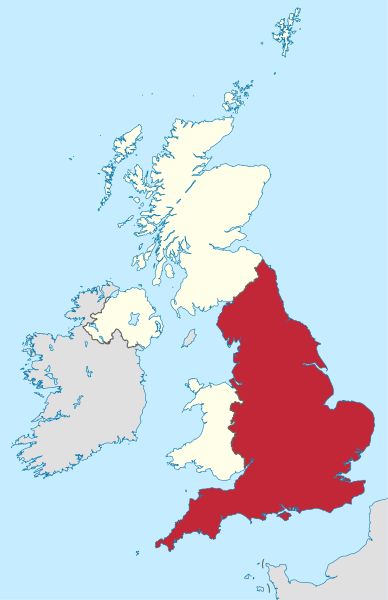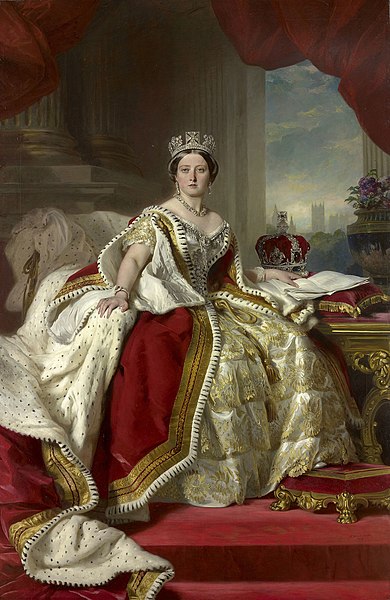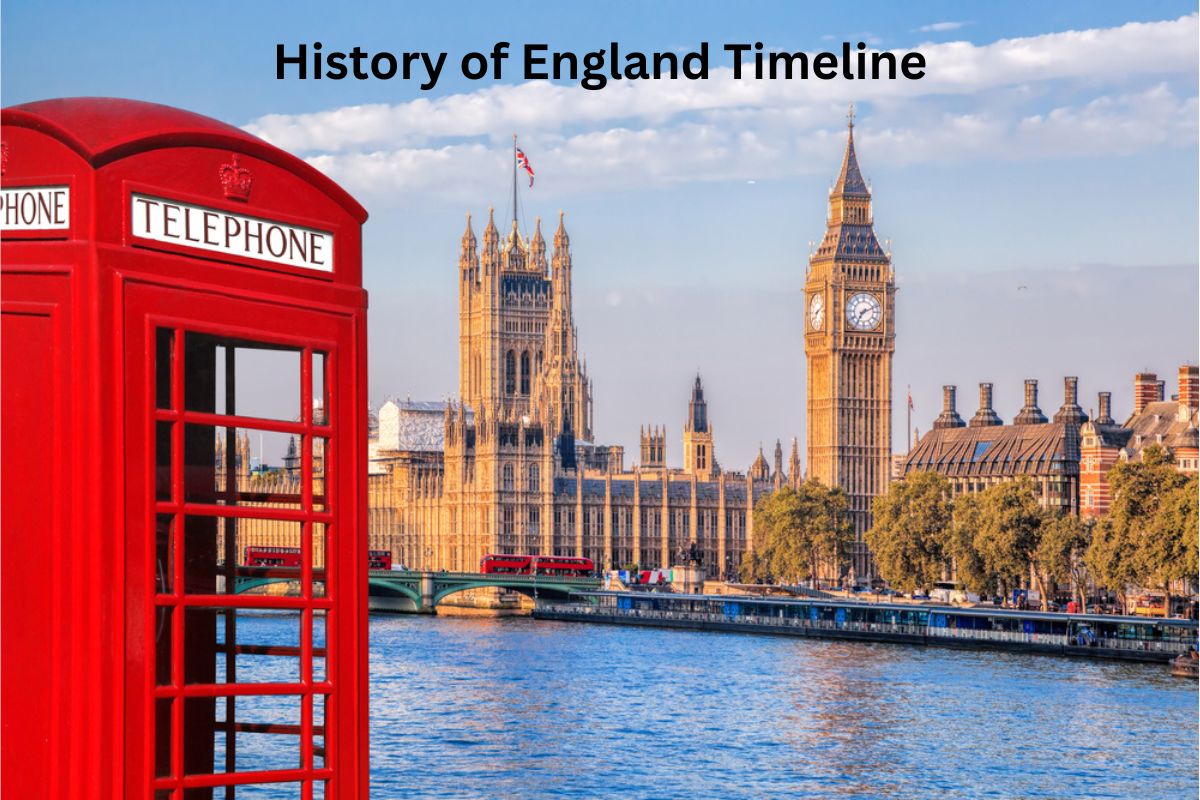The history of England is a captivating journey through time, marked by a rich tapestry of events, rulers, and cultural transformations.
From its ancient origins and Roman conquest to the medieval dynasties, the Enlightenment, and the challenges and changes of the modern era, England’s history offers a window into the evolution of a nation that has played a significant role on the world stage.
This history is characterized by conquest, exploration, political upheaval, industrialization, and social progress, making it a fascinating and diverse narrative that has shaped the England we know today.
| Period | Key Events and Rulers |
|---|---|
| Prehistoric England | – c. 800,000 BC: Earliest human presence. |
| – Stone Age cultures. | |
| Roman Britain | – 43 AD: Roman invasion under Claudius. |
| – 410 AD: Roman withdrawal. | |
| Anglo-Saxon Period | – 5th-7th centuries: Arrival of Anglo-Saxons. |
| – Viking invasions. | |
| – 871-899: Reign of Alfred the Great. | |
| Norman Conquest | – 1066: Battle of Hastings, William the Conqueror. |
| Medieval England | – 12th century: Plantagenet dynasty begins. |
| – 1215: Signing of the Magna Carta. | |
| – 1337-1453: Hundred Years’ War. | |
| – 1455-1485: Wars of the Roses. | |
| Tudor and Stuart Periods | – 1485-1603: Tudor dynasty. |
| – 1603: James I, Stuart dynasty. | |
| – 1642-1651: English Civil War. | |
| Restoration and Enlightenment | – 1660: Restoration of the monarchy. |
| – 1688: Glorious Revolution and Bill of Rights. | |
| Georgian England | – 1714: Hanoverian dynasty. |
| – 1750-1850: Industrial Revolution. | |
| – 1801: Act of Union with Ireland. | |
| Victorian England | – 1837-1901: Queen Victoria’s reign. |
| – 1867-1918: Expansion of voting rights. | |
| 20th Century and Beyond | – 1914-1918: World War I. |
| – 1939-1945: World War II. | |
| – 1945: Labour Party and welfare state. | |
| – 1952-present: Queen Elizabeth II’s reign. | |
| – 1973: UK joins the EEC (now EU). | |
| – 2016: Brexit referendum. |
English History Timeline
Prehistoric England:
Prehistoric England, stretching back to around 800,000 BC, is a period shrouded in mystery, where the earliest traces of human habitation emerge. These early inhabitants left behind clues in the form of tools, artwork, and burial mounds.
Also Read: Scottish History Timeline
Throughout the Stone Age, various cultures thrived in the region, adapting to their environment and leaving behind a legacy of primitive technologies and burial practices.
The people of this time lived off the land, hunting, gathering, and eventually transitioning to basic forms of agriculture. Their lives were intimately tied to the natural world, and their gradual development laid the foundations for the societies that would follow.

Roman Britain:
In 43 AD, the course of England’s history took a dramatic turn as Roman legions, under the command of Emperor Claudius, successfully invaded the island of Britain.
This marked the beginning of Roman Britain, a period characterized by Roman administration, infrastructure development, and cultural influence.
Also Read: Timeline of Roman Britain
Over the centuries, the Romans built roads, towns, and fortifications, leaving a lasting impact on the landscape.
Roman rule in Britain lasted until 410 AD when the legions withdrew to defend Rome, leaving the native Britons to face the growing threats from various Germanic tribes and later, the Vikings.
Anglo-Saxon Period:
Following the Roman withdrawal, a new chapter in England’s history unfolded as the Anglo-Saxons, a group of Germanic tribes, began settling in the region during the 5th to 7th centuries.
These newcomers established a series of kingdoms and brought their language and culture with them. However, this period was marked by the incursions of Viking raiders, who wreaked havoc along the coasts and eventually established the Danelaw in parts of England.
Also Read: English Monarchy Timeline
Amidst these challenges, one notable figure, King Alfred the Great, emerged in the late 9th century. His reign, from 871 to 899, saw determined efforts to defend against Viking invasions and promote learning and governance.
Alfred’s legacy is often seen as a pivotal point in the development of the English identity and monarchy.
Norman Conquest (1066):
The Norman Conquest stands as one of the most momentous events in English history. In the year 1066, William the Conqueror, Duke of Normandy, claimed the English throne by force.
This conquest culminated in the decisive Battle of Hastings, where King Harold II fell, marking the end of the Anglo-Saxon era.
With the Normans in power, England experienced significant changes. William and his successors implemented a feudal system, introduced Norman-style castles and churches, and conducted the Domesday Survey, a comprehensive land assessment.
The Norman Conquest fundamentally altered the English language, as Old English merged with Norman French to create Middle English, shaping the linguistic landscape for centuries to come.

Medieval England (12th-15th centuries):
The medieval period in England spanned several centuries and was marked by dynastic struggles, cultural evolution, and external conflicts. It began with the Plantagenet dynasty, notably with Henry II, whose reign saw important legal developments, including the establishment of common law.
The early 13th century saw the signing of the Magna Carta in 1215, a document that curtailed the absolute power of the monarchy and laid the foundation for constitutional principles.
The Hundred Years’ War with France, which started in 1337 and lasted until 1453, was a defining conflict of this era.
Additionally, the Wars of the Roses (1455-1485) were a series of civil wars between rival noble houses, the Lancasters and the Yorks, which ultimately led to the establishment of the Tudor dynasty.
Tudor and Stuart Periods (1485-17th century):
The Tudor period began with Henry VII’s victory at the Battle of Bosworth Field in 1485, marking the end of the Wars of the Roses and the commencement of the Tudor dynasty.
Also Read: Facts About the Tudors
The reign of Henry VIII, known for his six marriages and the English Reformation, had a profound impact on England.
His daughter, Elizabeth I, presided over a golden age of exploration and cultural flourishing. In 1603, with the death of Elizabeth, the Stuart dynasty commenced as James VI of Scotland became James I of England, unifying the crowns.
The 17th century witnessed the English Civil War (1642-1651) between Parliamentarians and Royalists, resulting in the temporary abolition of the monarchy and the establishment of the Commonwealth under Oliver Cromwell.
This tumultuous period laid the groundwork for constitutional developments that would shape modern England.
Restoration and Enlightenment (1660-18th century):
The period following the English Civil War and the Commonwealth was marked by the restoration of the monarchy in 1660, with the return of Charles II to the throne.
This era, known as the Restoration, brought about a sense of stability and a return to cultural and artistic vibrancy after years of turmoil. The Restoration also saw significant scientific advancements and the flowering of the Enlightenment.
Thinkers like Isaac Newton, John Locke, and Voltaire contributed to the Enlightenment’s emphasis on reason, individualism, and the separation of church and state.
In 1688, the Glorious Revolution occurred when William III and Mary II took the throne, following the overthrow of James II. This event was pivotal in establishing constitutional principles and parliamentary sovereignty in England.
The Bill of Rights of 1689, along with other legislation, set important precedents for limiting the powers of the monarchy and protecting individual rights.
Georgian England (1714-19th century):
The early 18th century marked the beginning of the Georgian era with the accession of the Hanoverian dynasty, starting with George I in 1714.
This period saw England’s transition into a constitutional monarchy with a constitutional framework that limited the monarch’s powers and expanded those of Parliament.

The Enlightenment ideals continued to influence society and politics, fostering debates about democracy, the rights of man, and social reform.
The 18th and 19th centuries were also marked by the profound transformation brought about by the Industrial Revolution. The development of new technologies and the shift from agrarian to industrial economies led to urbanization, economic growth, and significant societal changes.
The Act of Union in 1801 formally united Great Britain and Ireland, creating the United Kingdom of Great Britain and Ireland.
Victorian England (1837-1901):
The Victorian era, named after Queen Victoria’s reign from 1837 to 1901, was a time of unprecedented change and innovation. Queen Victoria’s long reign saw Britain become a global superpower, with the British Empire spanning vast territories across the world.

The Industrial Revolution continued to shape the country, bringing about urbanization, technological advancements, and economic growth.
Victorian society was marked by a strict code of morals and values, as well as significant social reform movements. The era witnessed progress in women’s rights, labor rights, and public health. Renowned authors like Charles Dickens, the Brontë sisters, and Thomas Hardy captured the social and moral issues of the time through their literature.
The 19th century also saw Britain involved in numerous conflicts, including the Crimean War and various colonial wars. As the century came to a close, the seeds of modernity were sown, setting the stage for the 20th-century developments that would further reshape England and the world.
21st Century and Beyond:
The 21st century has brought England and the United Kingdom into an era of technological advancement, globalization, and continued political change.
In 2007, Gordon Brown succeeded Tony Blair as Prime Minister, and the Labour Party continued to hold power until 2010 when the Conservative Party, led by David Cameron, formed a coalition government with the Liberal Democrats.
In 2012, Queen Elizabeth II celebrated her Diamond Jubilee, marking 60 years on the throne. Her reign has seen significant societal changes and the evolution of the British monarchy.
The UK held a referendum on Scottish independence in 2014, with Scotland voting to remain in the union. However, the issue of Scottish independence remains a topic of debate and discussion.
In 2019, Boris Johnson became the Prime Minister, and the Conservative Party secured a significant majority in the House of Commons, paving the way for the UK’s exit from the EU, which officially took place on January 31, 2020.
The 21st century has also seen England grapple with various global challenges, including terrorism, climate change, and the ongoing consequences of the 2008 financial crisis. The COVID-19 pandemic, which began in late 2019, posed a significant health and economic challenge, leading to lockdowns and vaccination campaigns.
